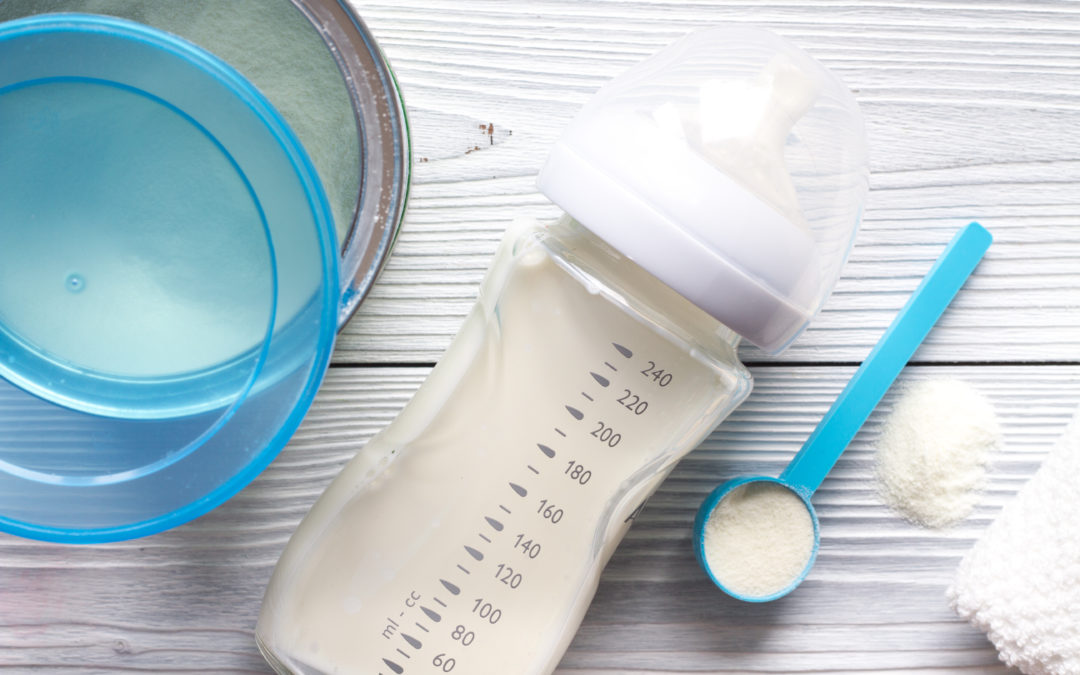Finding the best formula for your little one can be tricky, even under the best circumstances. But the national baby formula shortage has made this task even more difficult, leaving many families wondering how they will feed their babies. We get it – it’s scary when you’re not sure how to safely feed your baby. That’s why we’ve gathered helpful tips, resources, and a list of the dos and don’ts of baby formula to help you navigate this shortage.
When you can’t find your baby’s typical formula
If your baby is on a standard formula, you can substitute it with an alternative brand or another standard formula. Find a chart of alternative formulas here.
If your baby is on a specialty formula, speak to your pediatrician (or the provider who prescribed the specialty formula) about acceptable substitutes.
When you can’t find any formula
Try different types of stores. Like large chain groceries, local groceries, chain pharmacies, and local pharmacies. Ask the store if they are able to order your formula and how long it may take to come in.
Look online. Only purchase from well-known distributors (not individual people or auctions).
Ask friends and family when and where they have found formula.
As a last resort: If your baby is at least six months old, after consulting with your child’s healthcare provider, you can substitute pasteurized whole cow’s milk until you are able to obtain formula. You should resume formula when it is available again. If you have to substitute with whole cow’s milk, limit intake to 24 ounces per day.
- While giving whole cow’s milk, you should encourage iron-rich baby foods (iron-fortified baby cereals, green leafy vegetables, and red meat).
- If giving whole cow’s milk, ask your pediatrician if an iron supplement is needed to prevent anemia.
The dos and don’ts of baby formula
Things NOT to do:
- Dilute your baby’s formula with additional water. This can be harmful and even deadly for your baby.
- Substitute with reduced-fat, low fat, or skin cow’s milk. Your baby needs additional fat for optimal brain growth.
- Substitute with goat’s milk, almond milk, cashew milk, oat milk, rice milk, coconut milk, or hemp milk. These do not have enough calories and nutrients for your baby.
- Add cereal or baby food to formula.
- Make your own formula.
- Accept formula cans that are previously opened, dented, damaged, or expired.
Things to DO:
- Check online stores and authorized sellers for formula.
- Ask friends and family to help you search for formula.
- Consider store-brand alternatives from this list.
- Check and call non-chain grocery stores, food banks, and pharmacies.
- Contact your local Women, Infants, and Children (WIC) office for formula options/covered alternatives.
- Call formula companies directly for additional resources.
Other resources
- For more information, talk to your pediatrician or reference information from the American Academy of Pediatrics and/or HealthyChildren.org.
- Feeding America: Find your local food bank to ask whether they have infant formula and other supplies in stock.
- Human Milk Banking Association of North America: Certain HMBANA-accredited milk banks are distributing donated breast milk to mothers in need; please note that some may require a prescription from a medical professional.
- Contact your local WIC office for formula options/covered alternatives.
- Store locator links:
- Manufacturer hotlines:
- Abbott’s (Similac) Consumer Hotline: 1-800-986-8540
- Gerber MyGerber Baby Expert: 1-800-284-9488
- Reckitt’s (Enfamil) Customer Service Line: 1-800-222-9123
Want to speak to a pediatrician about baby formula options or schedule an appointment? Find a provider here or call 423-778-KIDS (5437).







